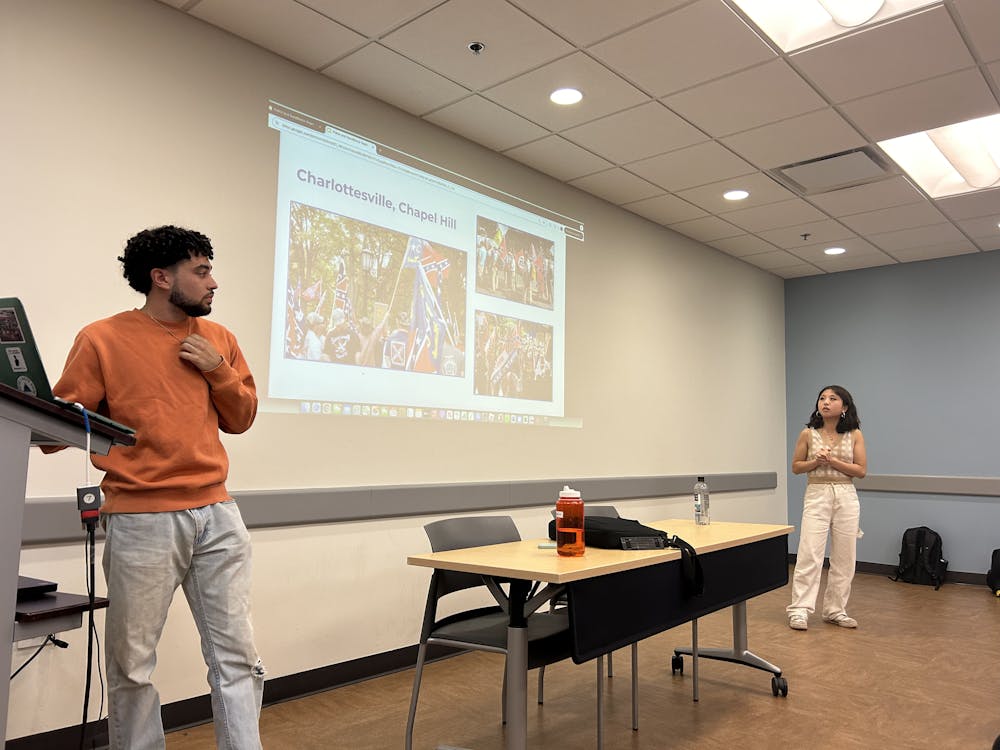On Oct. 29, TransparUNCy and the UNC Affirmative Action Coalition hosted their sixth teach-in of the semester centered around University surveillance and policing.
Julian Taylor, co-founder and executive member of the AAC, and Christina Huang, president of the AAC, gave the presentation, speaking about topics including the history of policing, the Silent Sam monument removal in 2018, UNC Police's actions during the Triangle Gaza Solidarity Encampment and campus surveillance.
They also referenced historical police interactions with UNC's Black Student Movement, the switch to the new Student Conduct System and the University's stance of "institutional neutrality."
The teach-in began with Taylor and Huang speaking about the history of policing in North Carolina and at UNC.
“North Carolina, specifically, has a really dark history of these militias and police forces, and one of the things I want to bring up is the Wilmington Coup of 1898," Taylor said. "It’s the only successful coup ever on American soil since the founding of the country.”
The Wilmington Coup, also know as The Wilmington Massacre, of 1898 was orchestrated by 2,000 white supremacists against The Daily Record, a Black-owned newspaper in Wilmington. William R. Kenan Sr., one of the coup's militia leaders, was the namesake of Kenan Memorial Stadium before the stadium received a new plaque honoring his son.
During the teach-in, Taylor also spoke about current UNC Police Chief Brian James.
In the chain of command, James answers to the associate vice chancellor for Campus Safety and Risk Management, who reports to the chief of staff to the chancellor, who then answers to Chancellor Roberts.
"The chief of police, he has power in day-to-day training, but the game time decisions? A lot of those are administration," Taylor said.



